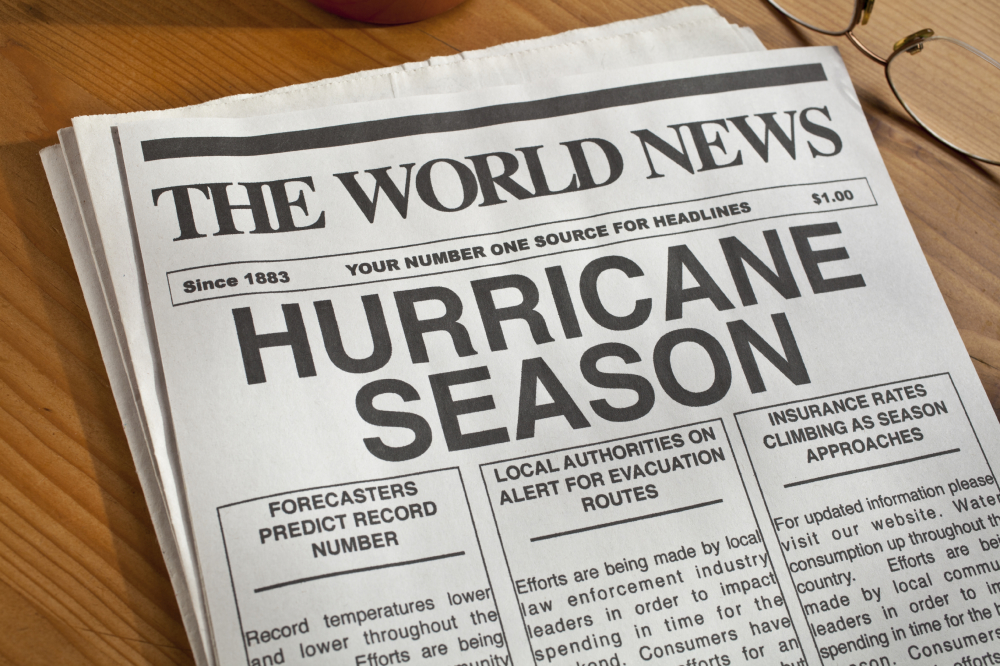Each year as soon as June 1 arrives, Texas meteorologists and news anchors will start tossing around the Big H word: HURRICANE. The Atlantic Hurricane Season, which includes the Gulf of Mexico, spans from June 1 through November 30th. Like clockwork, the conversation generally spirals from hurricane season is here and morphs into tips on how to survive with minimal impact on your family or how to limit havoc on your daily routine after the storm has passed. There is always a prediction of how many major storms will make landfall with some years being down right brutal and others being a breeze. For the year 2014, there are fewer actual hurricans predicted due to El Niño but one should still ensure you, your family and your home are all prepared. Many long term residents who call the Gulf Coast home, will likely have a few dozens stories to share about not being properly prepared for an incoming hurricane. So follow these simple steps to make sure you ready for a hurricane and its aftermath if a brutal storm does decided to crash into Texas.
Be Prepared
If you were a Boy Scout yourself or have/had a wee one in scouts, you’ve probably have heard their “Be Prepared” motto dozens of times. Every homeowner should follow that same motto of being prepared. The first step is to contact your local insurance agent to ensure your have adequate homeowners insurance to protect your largest asset. If you live by a large body of water or even a small stream, you may ponder putting into place flood insurance even if you aren’t in an actual flood plain. This is a separate policy that you may be able to terminate anytime. It is better to pay a few extra bucks annually to be safe than to be sorry later. If you haven’t already done so, snap a few photos of your large ticket belongings (including the serial number and make/model) and email those items to your insurance agent or your real estate agent. We at Urban Provision REALTORS® recommend you keep this list handy in your Dropbox, Box or in your Evernote accounts. These cloud based storage providers can be a lifesaver if you ever encounter a major disaster.
Hurricane Checklist
When a hurricane enters gulf waters it is recommended to fill all automobiles with gas and have additional gas on hand if you have a gas generator. Remove all loose objects (tables, chairs, potted plants) from outdoors as they can become flying debris that causes additional home damage. It is also wise to spend a few moments taking inventory of the items listed below. If you do not have an item readily available, take a trip to the grocery, department or hardware store to ensure your list is complete. Lastly, create a list where all items are stored and keep that list in a safe place that can be retrieved if needed. It is much easier to put your fingertips on these items if you have a master list, whether it be printed or digital.
- First Aid Kit/Medication List
- Nonperishable Food (don’t forget the manual can opener)
- Bottled Water (for both your family and your pets)
- Pet Food/Medications
- Charcoal, Lighter Fluid, Matches
- Candles/Flashlights/Battery Operated Radio
- Batteries (plan for two weeks worth)
- Fire Extinguisher
- Masking Tape/Plywood/Hammer/Nails
- Hand Sanitizer/Soap/Paper Towels/Paper Plates
- Protective Clothing/Sturdy Shoes/Rain Gear
- Cleaning Supplies (mops, brooms, rakes, pails, chainsaw – gas powered)
- Mobile Phone Charger (solar powered)

